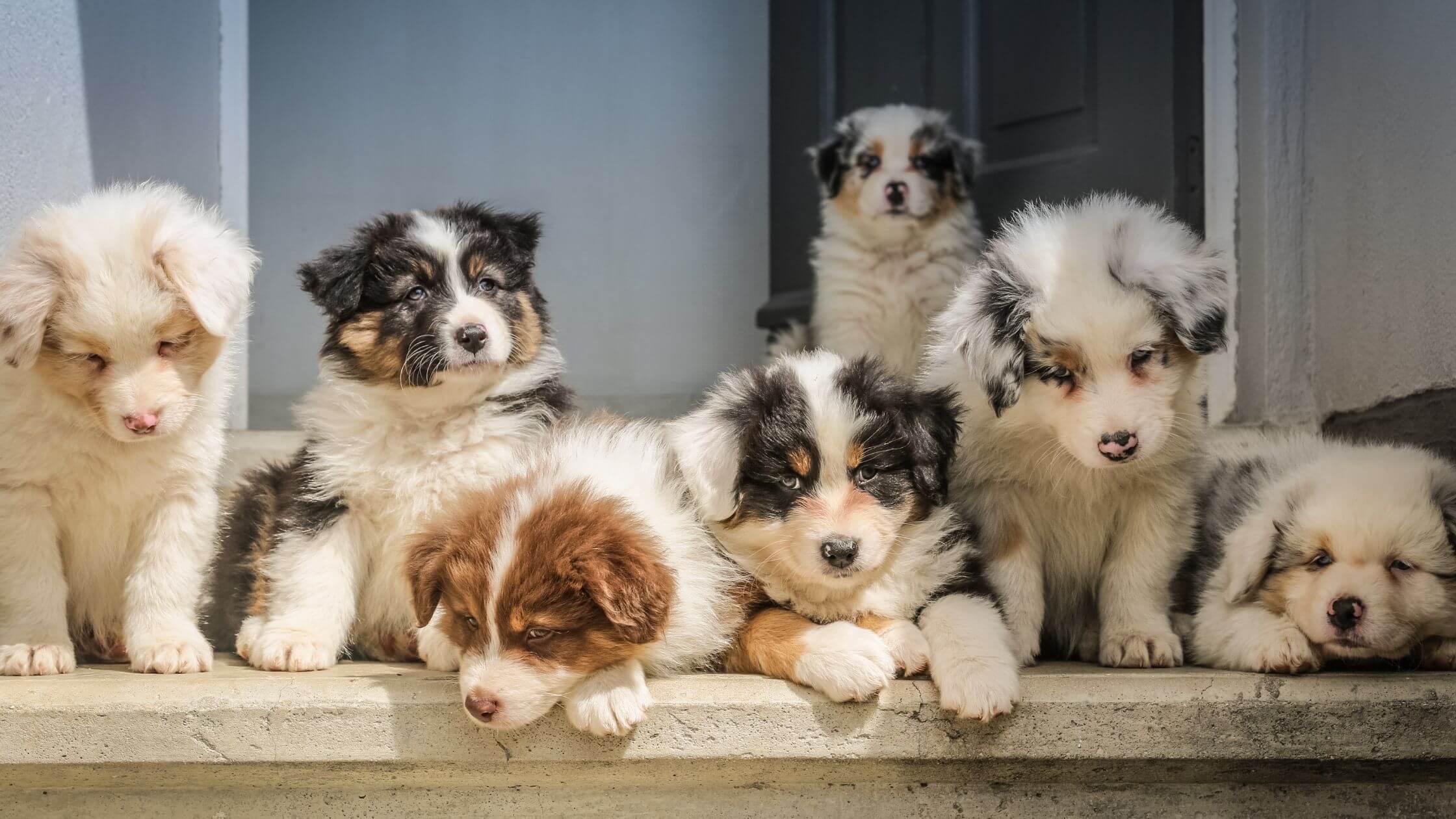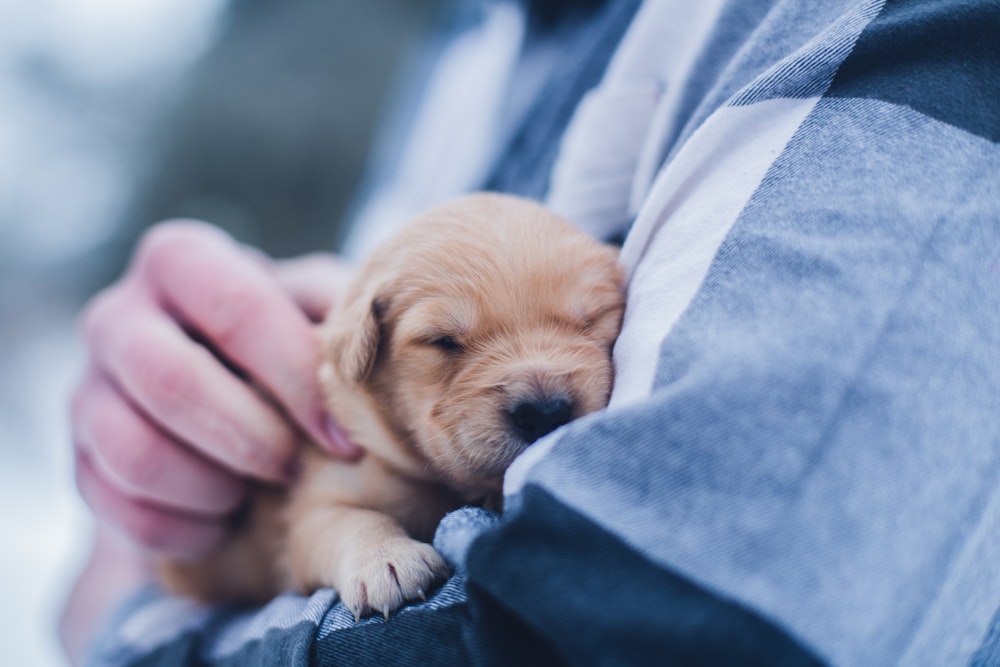Development of a 3 Month Old Puppy – Helpful Information You Should Know

Just like a human baby, the life of a dog is greatly influenced by different stages of development.
As puppies grow, their physical and emotional capacities begin to increase as they learn to interact with their environment better than they could before.
While not all dogs achieve the same level of development at a certain age, there are some characteristics that are common to all puppies of a given age group.
Here is everything that you can expect from a 3 month old puppy.
The Stages of Puppy Development
When we talk about the stages of development in a puppy’s life, we talk about certain aspects of their behaviors. These behaviors can include everything from physical behavior patterns to emotional patterns.
Puppy development also includes your puppy’s eating habits and preferences, its growing health needs, as well as the training that it requires to maintain pace with its development.
3 months old is a crucial development stage for a puppy. A puppy goes through intense physical and emotional changes.
These changes include rapid growth in size, teething, and even acquiring a fear of new people and new places.
Most puppies are placed into homes at 12 weeks, or 3 months, of age. Therefore, puppy owners should know about the development of their pup’s brain so that they can take better care of their beloved puppy.
What Should a Puppy Know at Two Months?
Before we talk about the development stages of a 3-month-old pup, it’s best to review what a 2-month-old puppy is like.
At 2 months old, your pup should still be spending most of its time feeding and resting.
Your pup should still be curious about its surroundings but since his senses have fully developed by this stage, your pup will be extra cautious with its surroundings than before.
Your pup should also have received his first dose of vaccination at this stage.
A 2-month-old pup is usually introduced to basic training, including obedience training around the house, and also to create training = acclimatizing your puppy to his new home: the crate!
12 Weeks Old Puppy Growth: Physical and Behavioral Development
Now that you’ve caught up on your puppy’s development, here’s what you can expect from your 12 weeks old pup.
3 Months Old Puppy Physical Development
Bowel and bladder control
3 months old puppies usually have better control over their bowels and bladders. This means that potty training your puppy will go much more smoothly from now on.
Potty training is an essential part of your puppy’s growth if your dog is to be fully house-trained by the time it reaches its full size. Timely potty breaks are an important indicator of good health and a certain characteristic of healthy animals.
If you haven’t already, start teaching your dog how to go potty in a designated place at this age.
Teething!
At 3 months, your puppy will also start teething. These will mostly be small outgrowths which are usually uneven and far from the permanent teeth you see on a grown dog. But that is only because these are baby teeth.
With its newfound tools, your dog might start biting everything and everyone (mostly playfully) around the house. It is important that you teach your dog not to bite everything it sees!
When puppies start to grow teeth, they become agitated and start acting up. Your pup may start to bite furniture, rugs, and even the electrical cords!
This is a good time to work with your puppy to eliminate bad habits and teach it precisely what to bite and what not to!
You can consider buying chew toys at this age to help your puppy with some of its frustration and also to improve its biting skills.
However, avoid giving your dog rigid toys to bits, such as hard nylon dog toys, as these can damage the teeth of your puppy.
Growth spurt
3 months is also the age when dogs grow significantly in size. But most dogs achieve their adult size at about six months.
The size that your dog achieves at this age will depend mostly on the puppy’s breed. Smaller breeds may reach an almost identical version of their adult size at this stage of life.
Medium breeds may reach 70-75% of their full size. Bigger breeds would reach about half their size at this point and achieve their full size at about six months old.
3 Month Old Puppy Behavioral changes
3-month-old pups will have intense behavioral changes. This is because at this age your pup has fully developed most of its senses.
12 weeks of age is a critical window for the positive socialization of your puppy. Your dog will begin to develop separation anxiety if you go away for long periods of time.
This is where you want to spend most of your free time teaching your dog valuable skills and also rewarding all good behavior.
As your dog gets a bit older, it will start to acquire a fear of unknown things, including unknown animals and objects around and about the house.
Utilize this socialization period well so that your dog learns to behave around other people and also other animals, including other dogs.
Try taking your dog out in small crowds first, keeping it away from loud noises and clutter. Teach it to be playful around new dogs so that your puppy acquires playful skills.
3 Month Old Puppy Health and care

Your puppy will also need regular visits to the vet to get fully vaccinated and also for routine checkups.
Since regular visits to the vet are super important for your puppy’s health, it is important that you work on building a positive experience for your dog during the initial visits to the vet.
Most puppies will need regular visits to the vet at four to six months of age, so this is the right time to work on your puppy’s relationship with its doctor.
3 Month Old Puppy Food and Nutrition
Healthy food is essential for your pup’s growth. Your puppy will require more food now that it’s older and more agile. Good nutrition will also help with your dog’s sleep, which is vital for growth.
Ensure that you monitor your dog’s food intake at least once a week. Commercial food products will have calorie data on the back which provide valuable information for your pet’s nutrition.
If you are going to use treats in your puppy’s diet, make sure that you only use the non-toxic variety. Treats should not make up more than 10% of your pet’s diet.
3 Month Old Puppy training
Training is important if you expect your puppy learns new skills, proper behavior, and manners.
At 3 months of age, you should start your puppy’s training for basic commands, such as sit, stand, and come. You can also start leash exercises so that your dog knows how to behave outside your home.
Consider signing up for puppy training classes if you need a few tips on how to eliminate bad behavior and how to train your dog better!
Conclusion
12-week-old puppies are drastically different from their younger selves because they are more energetic, require more nutrition, and are more cautious in their approach to life
They also go through unprecedented physical changes which heavily affect their behavior and their experiences at this stage set the tone for the rest of their lives.
Therefore, 3 months is a crucial age for puppies and dog owners should take extra care of their dogs at this point in life.
Regular walks, heavier and healthier nutrition, and also more focus on the puppy’s social abilities are just some of the things that you can expect from a 3-month-old puppy
FAQ
What should I expect from a 3 month old puppy?
3 months of age is a crucial time in a dog’s life. Expect your puppy to grow bigger in size, start teething, be more cautious around everything, and also acquire a fear of unknown objects.
What commands should a 3 month old puppy know?
While your puppy might not be expected to fully master all of these commands, it should definitely be trained for sitting, standing, approaching, and stopping biting on commands.
Do puppies sleep a lot at 3 months?
Your 3 month old puppy will definitely sleep more on account of its increased agility. It is normal for your puppy to spend most of the night sleeping, as opposed to the restless sleep that it used to get during the night when your puppy was a literal baby.
However, you should be concerned if your puppy spends half of its day sleeping.
How often should you walk a 3 month old puppy?
At 3 months of age, you should take frequent walks with your puppies. Your 12-week-old puppies are much more agile now than they used to be.
Moreover, puppies grow frustrated when they are not taken on walks. Make sure that you spend most of your free time taking your puppies outdoors to help them socialize as well.
